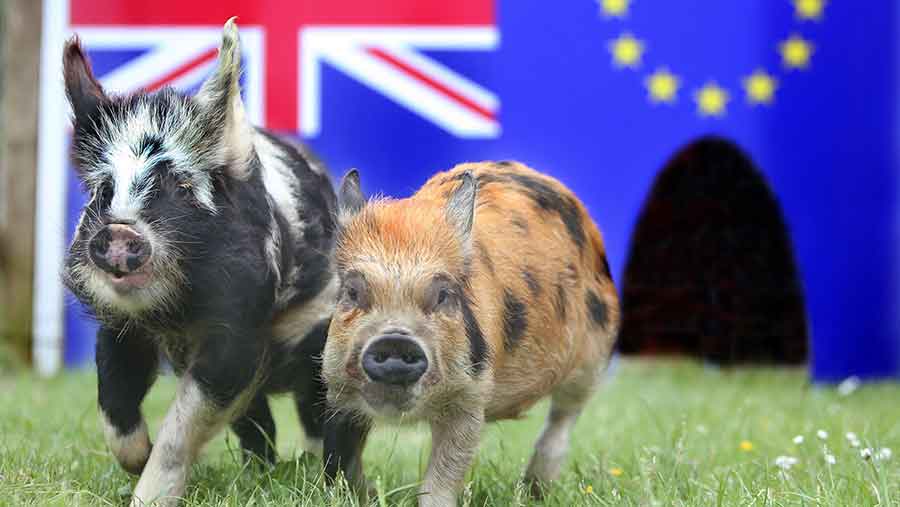Brexit-proof your business, farmers urged
 © Rex/Shutterstock
© Rex/Shutterstock Farmers are being urged to take simple steps that will help to “Brexit-proof” their businesses.
More than 150 delegates discussed the impact of Brexit on agriculture during a Savills seminar at Stoke Rochford Hall, Lincolnshire, on Thursday (10 November).
Catherine Harris, partner and head of agriculture at solicitors Wilkin Chapman, said: “Farmers and landowners should conduct a Brexit audit” of their businesses.
See also: Economist calls for ‘exit bond’ for farmers
This should cover the structure of the farming business and any tenancies – and who is holding subsidy rights – and try to determine what might happen following any post-Brexit changes.
It was also important to look at any environmental schemes, which would be increasingly important to farm businesses after the UK left the EU.
I would suggest that farmers need to understand their businesses – and look at whether there are any opportunities to mitigate the impact of any fall in subsidies Ian Bailey
“A proper written partnership agreement is very important,” Ms Harris told delegates, adding that he partnership agreement should detail who owns which assets.
“You have got to define whether the land farmed by a partnership belongs to the partners or whether it belongs to individuals in their own right.”
Ian Bailey, head of agricultural research at Savills, said the farm businesses best placed for Brexit were likely to be those which were diversified.
“I would suggest that farmers need to understand their businesses – and look at whether there are any opportunities to mitigate the impact of any fall in subsidies.”
Going forward, it was unlikely that subsidies would disappear completely, said Mr Bailey.
But he added: “I do think we are going to come under pressure and I do think it is one of the factors that we need to look at very carefully.”
But this meant there would also be new opportunities and farmers needed to look for them.
Hard Brexit
Ben Gutteridge, head of fund research at financial advisers Brewin Dolphin, said he believed the government was likely to implement a “hard Brexit”.
This would see the UK leave the EU single market as well as the EU itself.
“Given the type of Brexit that I believe the government is pursuing, I think the outcome will be weaker sterling – or at least for sterling to remain weak.”
This would mean inflationary challenges, so farmers and landowners should hedge against inflation, by looking for overseas investments.
The FTSE100 was comprised of many multinational companies, so this constituted a decent hedge against UK inflation, suggested Mr Gutteridge.
